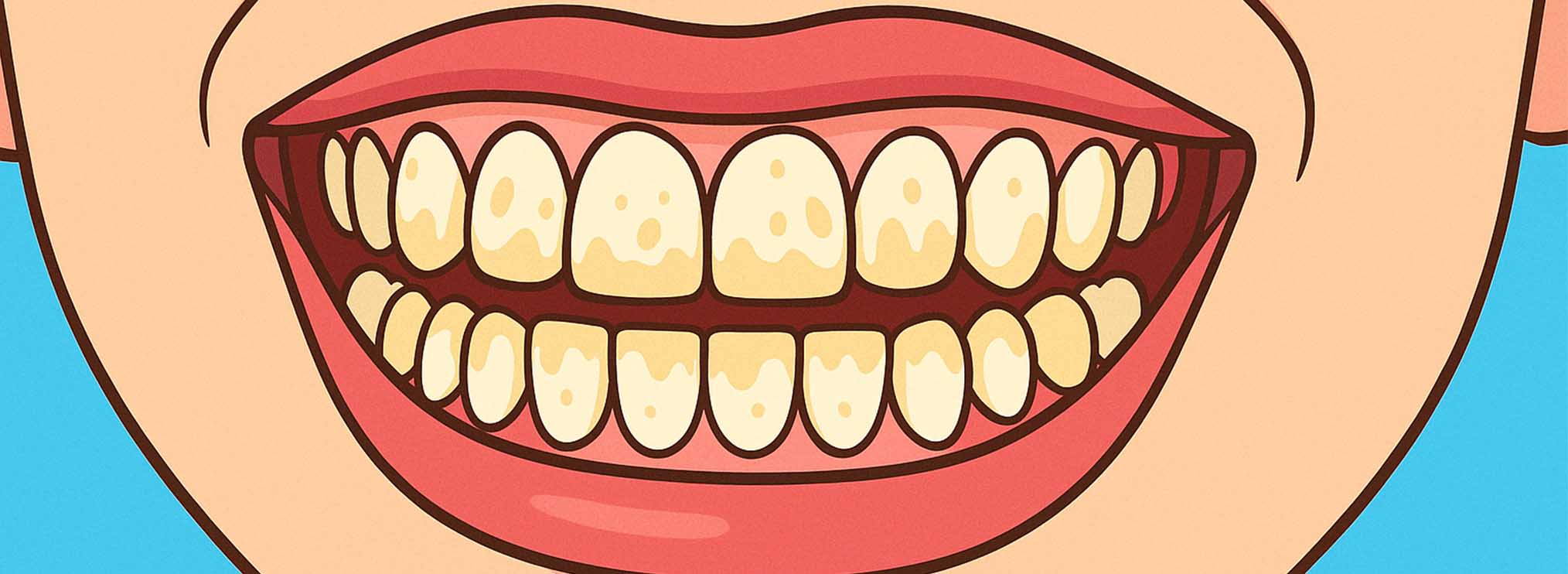
Understanding Stained Teeth
Stained or discoloured teeth are very common and can affect anyone. Over time, teeth naturally lose some of their brightness due to the foods and drinks we consume, habits like smoking, or even changes inside the tooth. While some staining is harmless, noticeable discolouration can impact your confidence and may sometimes indicate an underlying issue that needs attention.
If you’ve noticed yellow, brown, or dark spots on your teeth, our friendly team at Granite Belt Dental can help identify the cause and discuss treatment options to restore your natural smile.
Common Causes of Tooth Discolouration
Tooth discolouration can be caused by several internal and external factors:
- Foods and drinks – Coffee, tea, red wine, dark sauces, and berries can stain the enamel over time.
- Tobacco use – Smoking or chewing tobacco is a leading cause of brown and yellow stains.
- Poor oral hygiene – Plaque and tartar build-up can trap surface stains and make teeth appear dull.
- Aging – As enamel thins with age, the yellow dentin beneath becomes more visible.
- Medications – Certain antibiotics (like tetracycline) and other medications can cause intrinsic stains that whitening can’t remove.
- Dental trauma – Injury to a tooth may cause it to darken from the inside.
- Excess fluoride – High fluoride intake during childhood can cause white spots on developing teeth.
- Genetics – Some people naturally have darker or more yellow-toned enamel.
Types of Stains
- Extrinsic (surface stains) – Affect the enamel and are usually caused by lifestyle factors like coffee, tea, and tobacco.
- Intrinsic (internal discolouration) – Occurs within the tooth’s inner structure (dentin), often from trauma, medication, or decay.
- Age-related discolouration – Results from a combination of enamel thinning and dentin darkening.
Why Stained Teeth Shouldn’t Be Ignored
Although tooth staining is often cosmetic, in some cases it can point to underlying oral health issues such as enamel erosion or tooth decay. Leaving these untreated may lead to sensitivity, cavities, or further discolouration.
If discolouration affects your confidence or comfort, it’s best to visit your dentist for a professional assessment.
Treatment Options at Granite Belt Dental
Our experienced team can recommend the best treatment based on the cause and severity of staining:
- Professional teeth whitening – Safe, effective treatment to remove surface stains and restore brightness.
- Dental cleaning (scale and polish) – Removes plaque and tartar that hold stains.
- Porcelain veneers or dental bonding – Thin ceramic shells placed over the front of teeth for lasting results or tooth-coloured resin that masks deeper discolouration.
- Crowns or fillings – May be recommended when discolouration is linked with decay or damage.
We’ll always tailor your treatment to your goals and ensure your teeth remain strong and healthy throughout the process.
How to Prevent Tooth Stains
- Brush twice daily with fluoride toothpaste and floss once a day.
- Rinse with water after consuming dark-coloured foods or drinks.
- Limit coffee, tea, red wine, and sugary or acidic foods.
- Quit smoking or using tobacco products.
- Keep up with regular dental check-ups and professional cleans.
How We Can Help
At Granite Belt Dental, we believe everyone deserves a smile they can feel confident about. Whether your teeth are stained from coffee, tobacco, or age-related changes, our gentle and professional team can help brighten your smile safely.
We take the time to listen to your concerns, assess your teeth carefully, and recommend the most effective options to suit your lifestyle and budget.
If you’re ready to bring back your natural shine, book an appointment at our Stanthorpe or Warwick clinic today.
Frequently Asked Questions
1. Can stained teeth be whitened?
Yes, most surface stains can be lightened or removed with professional whitening treatments. For deeper or internal stains, options like bonding, veneers, or crowns may provide better results.
2. Are tooth stains permanent?
Most stains are not permanent and respond well to professional cleaning or whitening. However, some intrinsic discolouration caused by trauma or medication may need cosmetic restoration.
3. Does whitening damage enamel?
When done under professional supervision, whitening treatments are safe and do not damage your enamel. Your dentist will ensure the whitening product and strength are appropriate for your teeth.
4. Why are my teeth still stained after brushing?
Brushing removes surface plaque, but it can’t always remove stains embedded in enamel. In these cases, a professional cleaning or whitening treatment may be needed.
5. How long do whitening results last?
Results can last from several months to a few years, depending on your diet, habits, and oral hygiene. Avoiding staining foods, quitting smoking, and keeping up with dental check-ups will help maintain your bright smile longer.
